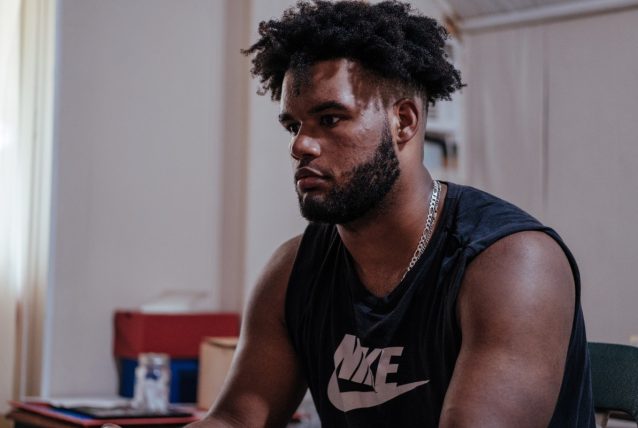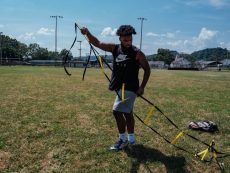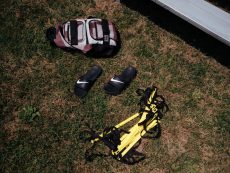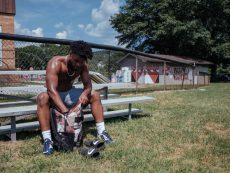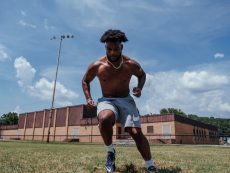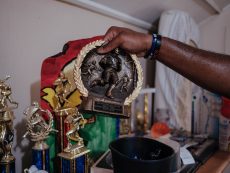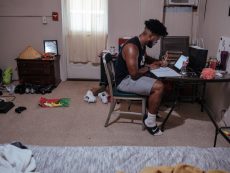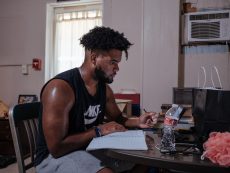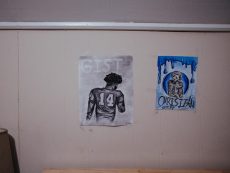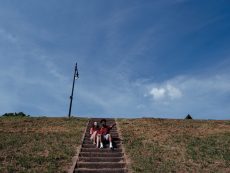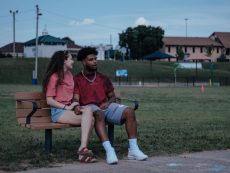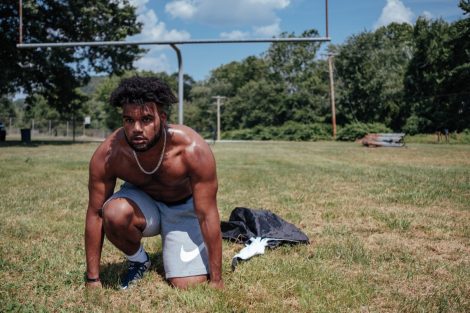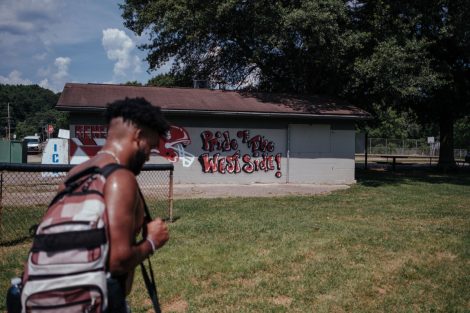Christian
Charleston, West Virginia
"I like to think of myself as my own role model. My future self — the picture of what
I see myself being — that's what inspires me."
"I feel too condensed [in West Virginia]. I feel like the mountains are literally holding me in a bowl in this state. There's not very much a unique variety of people here – I feel like there is, but to me, living in Charleston, living on the West Side, it seems like I know everyone that I need to know. And I just need something more. I don't like living in the same ordinary place."
"People are too comfortable with living in the moment instead of wanting to get out of here, wanting something new. Because they're just satisfied, and I'm never satisfied. They don't see anything in their lives that they have work to get rid of. Like, I want to get rid of this poverty within my family and create generations of my children to where they don't have to worry about, you know, worrying about the next paycheck to get food and all that stuff and struggling each week.
"Ever since I can remember, I've always told my mom I don't want to struggle paying bills. She just told me to work for it. Go to college, get a degree. I'd be the first person in my family to go to college. Each generation, they've made it better for them, and I just want to keep that same process going."
Click an image to enlarge and move through the gallery. Photo: Curren Sheldon/100 Days in Appalachia
Click to play the video. Credit: Curren Sheldon/100 Days in Appalachia
Click image to enlarge. Photo: Curren Sheldon/100 Days in Appalachia
"I think the struggle is the same as anywhere, but being in West Virginia, it's as if we're overlooked. It's like some people don't even know West Virginia is a state, and they think we're all just inbred country folk that don't know nothing, you know. For most people, it really is the military or sports to get out of here. And I mean, that's just a problem that we have to fix eventually.
"That's one of my biggest dreams, you know, just come back and give back to my community. And have enough money to actually aid this community, talk to the young folk and just give them some inspiration to where, you know, you shouldn't only dedicate yourself to sports because literally I made it out of here, so you can too.
"I've never really necessarily had a role model from here. I like to think of myself as my own role model. Like my future self – the picture of what I see myself being – that's what inspires me."
Click image to enlarge. Photo: Curren Sheldon/100 Days in Appalachia
"I have two different social groups. And you know, one group, they're like, 'Oh, I don't understand, you know, all lives matter, so why are they just talking about Black Lives Matter?' And they're not racist or anything, they just don't understand. And whenever I explained it to them, they like, get it. And then my other friend group, they're very committed to Black Lives Matter. And it seems like they overcommit to it where they think like, 'Oh, every cop is bad, every white person is bad.' And that's just not the case.
"I mean, it's really your luck of the draw, I guess. Like, I hate to put it like that, but that's just how it is. And, I mean, that's how it's been for a long time. Like, at least it's not as bad as it was like back in the '60s. People are still racist, and I don't think you can ever change that fact. Racism is basically just ignorance passed on through generations."

